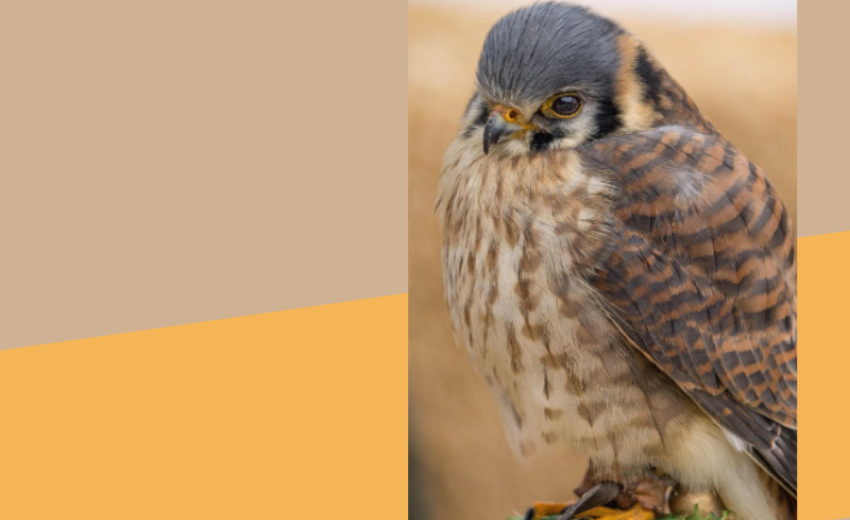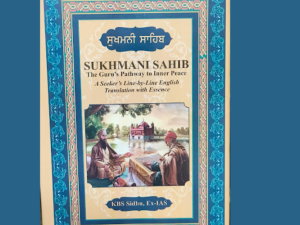Sri Guru Granth Sahib is such a great scripture for the entire world, following its teachings, every human being can get the boon of 'Lok Sukhiye Parlok Suhele' by improving his life, maintaining the capital of moral values. Guru Granth Sahib is such an ocean of knowledge in which all kinds of pearls can be found by the searcher. Many birds, animals, insects, trees, plants etc. have been mentioned in Guru Granth Sahib. In Guru Granth Sahib, the Babiha bird, also known as Papiha, Chatrik, and Chatak, is mentioned metaphorically to convey profound spirituality. The bird's yearning for water is used to symbolize the soul's yearning for the divine. Just as the Babiha calls for water, Gurbani suggests that the soul longs for a connection with the Creator. By chanting the True Name and following the teachings of the Guru, one can quench this spiritual thirst and attain spiritual fulfillment.
There is a tradition about this bird that it keeps looking towards the clouds for a special drop (called Swati boond). It is very much like a Shikra bird with a heavier throat stripe, but its habitat is thick, like an evergreen forest. Peace comes to him when that drop falls in his mouth. The family of this bird is Cuculidae. The size is between 25-38 cm. The Babiha has a billowing, pointed bill and a speed similar to that of a falcon in flight. Its color is ash-brown, but the chin, upper neck and chest are pale ash, and all parts are streaked with white and black below. There are several species of Babiha that are found in the Himalayas. Their voice is heard a lot when the time of breeding comes. Babiha usually eats only insects. It does not build its own nest but lays its eggs in the nests of others, especially in the nests of birds that are much smaller than them. The color and markings of its eggs are similar to those of most other birds. The new ones stand at the end of the nest and identify their parents. Each female lays 18-20 eggs in a season, that too in different nests. These birds take care of themselves by giving the responsibility of taking out the young to other birds.
The Babiha bird is also used to illustrate the devotee's longing for the divine, similar to how the Chatrik bird eagerly awaits the rain. The verses emphasize the importance of meditating on the Name of the Lord and seeking His grace to find contentment and spiritual bliss. The rain and water symbolize the divine blessings that bring fulfillment and remove the thirst of the soul.
ray man aisi har si-o pareet kar jaisee chaatrik mayh.
sar bhar thal haree-aavlay ik boond na pav-ee kayh. (SGGS 60)
O mind, love the Lord, as the song-bird loves the rain. The pools are overflowing with water, and the land is luxuriantly green, but what are they to her, if that single drop of rain does not fall into her mouth?
Guru Amardas ji, addresses the Babiha bird symbolizing the human soul, and its yearning for the divine:
"Babiha Priu Bole Kokil Bania. Sa Dhanu Sabhis Ras Cholai Anki Samania." (SGGS 1107)
The verse suggests that just as the Papiha (Babiha) calls out to its beloved, and the cuckoo sings its melodious tune, the soul too longs for a connection with the Divine.
Babiha jis no tu pukarda tis no lochai sabu koi..
Apni Kirpa Kari Kai Vasi Vanu Trinu Hariya Hoi. (SGGS 1281)
Guru Sahib says O Papiha ! Do not lament, nor let your soul die longing for water. Accept the order of your Lord. O Nanak! By accepting His will your thirst will be quenched and your love for Him will be fourfold.
Guru Amardas ji further explains that the soul should not lament but instead accept the will of the Lord. By doing so, the soul's thirst will be quenched, and its love for the Lord will increase:
"Babiha na billai na tarsai ehu manu khasam ka hukamu manni Nanak hukami manniaye tikh utrai charai chavgali vannu." (SGGS 1282)
The verse emphasizes the significance of accepting the Lord's will and finding contentment and fulfillment through devotion.
Babiha Khasmai ka Mahalu na jaanhi Mahalu dekhi ardasi pai.
Apnai bhanai bhai bole boliya thai na pai……..
Amrit Hari Ka Namu Hai Jitu Pitai Tiki Jai. (SGGS 1283)
Addressing Chatrik, Guru Sahib further indicates that you do not know your Lord's house. You should pray to see your Lord's house. In your zeal, you speak awa-twa but your speech is not accepted.
What did the poor Chatrik say, Akal Purakh quenches the thirst of the whole world:
Babilu mera jiu hai jal binu rahnu na jai…….
ha kia bapura jagatai ki tikh jai.. (SGGS 1283)
Papiha naturally chants the true name with love that this water is my living soul. Without water I cannot survive. Guru Sahib says O Chatrik! A virtuous wife occupies the temple of her husband and a virtuous wife is far from it. Within you dwells your Lord and through the grace of the Guru, He appears ever present:
Babiha Gunavanti Mahlu Paa Auganavanti Duri.
Antri Terei Hari Vasai Gurmukh Sada Hajuri. (SGGS 1283)
Papiha prays, 'O Lord! Please grant me the gift of spiritual life. Without the water of Your name, my thirst is unquenched and my life ceases”:
Babiha should request
Kari Kirpa Dehu Jiya Dan. Jal binu pyaas na utrai chutki jahi . (SGGS 1284)
Chatrik can experience the Lord's pleasure only while sleeping. The mourning has ceased and rest has settled in his heart:
Guru Arjan Dev ji also uses the metaphor of the Babiha bird to explain spiritual truths. The Babiha's yearning for water symbolizes the devotee's longing for the divine:
"Babihe tani mani sukhu hoi or tatu bund muhi pai." (SGGS 1420)
The verse illustrates that just as the Babiha's body and mind find happiness when it gets water, the devotee's spiritual thirst is quenched by meditating on the divine Naam (Name).
Furthermore, Guru Arjan Dev ji explains that the devotee's thirst for the divine can only be fulfilled by meeting the true Guru, who imparts the knowledge of the divine Name:
"Babiae sangli earth je feriha uchi chadhi akasi..
Satguru Millaye Jalu Paaye Chukai Bhook Pyaas." (SGGS 1420)
This verse emphasizes that by associating with the true Guru, the soul is blessed with the divine Naam, and its spiritual thirst is quenched.
The references to the Babiha bird in Guru Granth Sahib serve as powerful metaphors, inspiring spiritual seekers to yearn for a deeper connection with the divine. Through devotion, meditation on the divine Naam, and the grace of the Guru, one can attain inner contentment and spiritual fulfillment, just as the Babiha finds satisfaction when its thirst is quenched by the rain it longs for.





